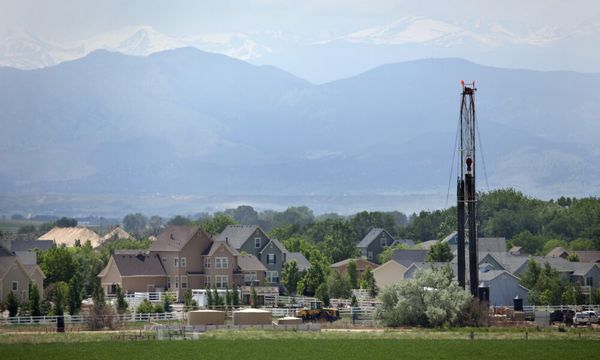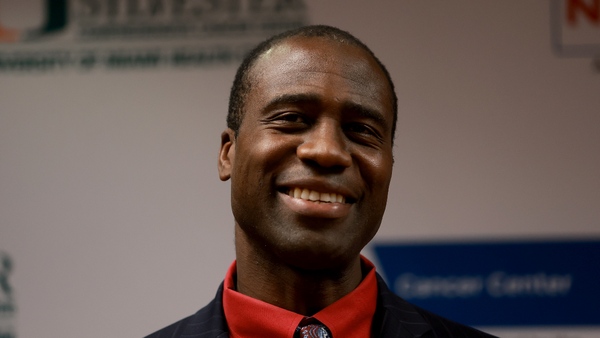
Obituary: Ngāti Whātua kaumatua Joe Hawke, who spearheaded the Takaparawhau/Bastion Point protest, has died, aged 82.
Born in Tāmaki Makaurau in 1940, Joseph Parata Hohepa Hawke of Ngāti Whātua ki Ōrākei had trained as a builder and was a central figure in rebuilding his people after they were left virtually landless and destitute.
While Dame Whina Cooper led the national land march in 1975, it was Joe Hawke that planted the flag of protest in the middle of New Zealand's biggest city, disrupting Pākehā assumptions about harmonious race-relations. Hawke was the secretary of Te Matakite o Aotearoa, the organising group for the land march.
The Crown's proposed sale of Bastion Point/Takaparawhau was the culmination of decades of dispossession of Ngāti Whātua and Hawke was not willing to tolerate it any longer. Ngāti Whātua Orakei walked onto their whenua in January 1977 and Joe Hawke was at the forefront of the protest that lasted 506 days before police and the army moved in during May 1978, demolishing buildings and arresting 222 protesters, including Hawke.
The protest brought the generations of pain and loss into the living rooms of New Zealand for over a year, loss that had occurred over decades.
Joe Hawke's niece Precious Clark, a current member of the Ngāti Whātua Trust Board, says the Bastion Point protest was the culmination of generations of Ngāti Whātua trying in vain to seek justice through official channels.
"For over 80 years we’d tried to advocate by peaceful means and channels to try and acquire our land back. When you think about Bastion Point it was actually confiscated under the Public Works Act in 1880. The purpose was a Russian invasion that never happened. Despite legal action, despite petitions, nothing happened. Our kaumatua wanted to hold onto the value of rangimarie, kia tau te rangimarie, maintain peace. Uncle Joe was activated in a different way. But the Bastion Point movement was one of peaceful and passive resistance. So holding onto the values of our kaumatua while exploring new ways to get people’s attention. Uncle Joe was right. It did capture the attention of the nation and it was the catalyst for other protests that followed, like Raglan under Whaea Eva Rickard," says Clark.
"It was absolutely needed, it was absolutely required. Maori were not having success through the court process."
In 1910-11, over the objections of Ngāti Whātua, a large sewer and concrete retaining wall were built across the Ōkahu Bay foreshore, leading to flooding and cutting off the hapū's normal access to the sea from their village at the bay. Auckland began discharging raw sewage at the harbour entrance from 1914, polluting the hapū's shellfish beds.
"There could have been no greater insult to a Māori tribe, even if one were intended," the Waitangi Tribunal said in its report on the Ōrākei claim in 1987.
In anticipation of the Queen's visit in the 1950s the Auckland Council evicted Ngāti Whātua whanau from their homes, which were then burned down. Clark says it was a defining moment in Joe Hawke's life.
“(Uncle Joe) was a young boy when that happened and what he experienced was injustice. At the time, our village, our papakainga, was down at Ōhaku Bay. Uncle Joe would have been about 10 or 11 at the time. He watched his home and his whole village’s homes being burnt down. We were then kicked up the hill, we affectionately call it Boot Hill. What he also saw was his kuia lament with heartbreak and some of them died immediately after that. That level of injustice that he experienced, and saw his entire village suffer, remained with him.
"It was a perfect excuse, the Queen was coming and our village was regarded as an eyesore. So they took it upon themselves, the Auckland Council, to torch our houses. That’s within living memory, that’s Uncle Joe’s memory, my mother’s memory. It wasn’t in the 1800s, it was in the 1952."
That injustice was compounded in the 1970s when the Crown looked to sell Ngāti Whātua's lands.
"So come 1977 when Robert Muldoon decided he wanted to build high rise apartments on our last remaining whenua, Uncle Joe decided enough was enough and he took that stand. And he took that stand by himself. He came up to Bastion Point with his wife, his three children and his dogs and started an occupation that lasted 507 days. He was the kind of man who was very visionary, very strategic and courageous. He had such charisma about him and that charisma allowed him to reach out to parts of the nation to get behind the cause. He was also extremely persistent. He kept fighting, going through the Waitangi Tribunal process. It was 1991 when we received our land back. That’s a long fight, a long struggle."
The Waitangi Tribunal report recommended the return of Takaparawhau/Bastion Point and the government accepted the tribunal's findings. It paid $3 million to the hapū, returned land, and set aside Takaparawhau/Bastion Point and Ōkahu Bay Reserve to be managed by representatives of the hapū and the Auckland Council.
"I went onto the point, not to invite an arrest, but to arrest a wrong and, 40 years on, all of Ngāti Whātua are benefiting from that stand," Joe Hawke said in 2018.
Clark says she has many personal memories of her uncle that she'll treasure.
“I have lots of awesome memories. He was the go-to uncle. He was really loving to all of us and created a lot of opportunities. Although he was this man of status and of stature, he was someone who kept us really close and loved on us. The legacy of Uncle Joe is worth celebrating, the fact that he took action on behalf of a collective with a really strong vision and purpose of a future for his iwi. That’s a massive legacy that he leaves for us to continue to uphold.
"On a personal level I can remember being a seventh former, I can remember receiving a phone call from him after school. He asked me what I was up to and I lied and said I was doing my homework, I wasn’t. He said to me, would you like to meet Nelson Mandela. I said, 'yeah, wow, yes'."
Before the powhiri they were warned not to approach or touch Mandela or his security would intervene. However, Mandela himself approached and engaged with tangata whenua.
"As a young girl I remember seeing Uncle Joe having a hongi with Nelson Mandela and me thinking, these are two men that shook the face of this planet. What I remember from that was Nelson Mandela just bathing us in light. I remember thinking, wow, this is what leadership is. These two men here think about the collective, who think about other people in their mission, in their leadership. So those are some precious and enduring memories that I have of my uncle."
Hawke's business acumen and leadership led to Ngāti Whātua being in a strong economic position and he later became a list MP for the Labour Party from 1996 to 2002. In 2008 Hawke was made a Member of the New Zealand Order of Merit for services to Māori and the community.
"Over time with strategic decisions made by Uncle Joe and his brother Uncle Grant and our other uncle Sir Hugh Kawharu and our other kaumatua, they made some really wise decisions in the 1990s that have allowed us to build a successful nest egg. We now have a $1.5 billion dollar asset base. It wouldn’t have started if Uncle Joe hadn’t taken that courageous stand, come up here and pitched a tent," says Clark.








